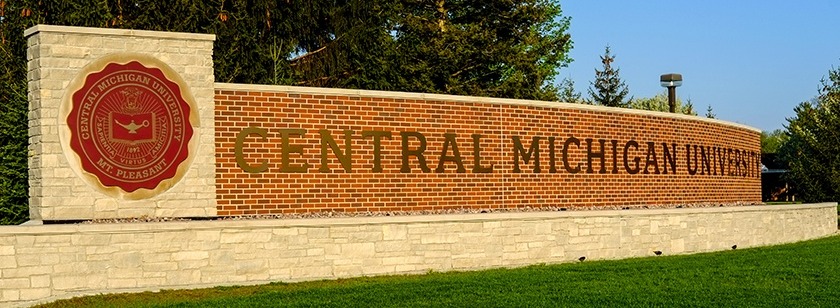Cross-Campus Leadership Initiative

We know leadership
Since 1998, we've made leadership education a priority with the opening of the Leadership Institute, a department centered around providing opportunities to develop students' leadership capacities. In 2006, leadership offerings expanded into the classroom, as Central Michigan University introduced the first leadership minor offered in Michigan.
As we continue to strive to be the premier destination for college students seeking leadership development, the manner in how we articulate leadership and develop students must evolve as well.
As a result, in 2015, a university-wide initiative was launched to expand leadership opportunities for all CMU students further. The Division of Student Affairs and the Counseling, Educational Leadership and Higher Education Department in the College of Education and Human Services began a process to re-imagine leadership education. Early in this reimagining, a partnership with Dr. Denny Roberts was created to review and assess existing leadership programs to create a plan to build the next generation of collegiate leadership opportunities.

Cross-Campus Leadership Initiative
Through a collaborative process involving students, faculty, administrators and national experts, the Cross-Campus Leadership Initiative was formed to advance Dr. Roberts' recommendations at CMU. The CCLI created documents and language-centered around a vision, mission and learning outcomes to support leadership education, which was adopted by the Academic Senate's Leadership Council in 2016.
Adaptive Leadership Theory
Adaptive leadership is an emerging model that embraces change, experimentation and innovation. The goal is for companies to enable individuals to handle challenges and adapt to an evolving environment.
Immunity to Change
From personal goals to professional aspirations to system-level reform, the ability to change often remains maddeningly out of reach — even with all the desire and motivation in the world. Two Harvard Graduate School of Education faculty members — Professor Robert Kegan and Lecturer Lisa Lahey— have built a body of work aimed at helping adult learners and leaders overcome this innate human aversion to change, a phenomenon they call Immunity to Change.
Theory of Self-Authorship
From Kegan's (1994) work, Baxter Magolda (2001) defined self-authorship as "the internal capacity to define one's beliefs, identity and social relations." This requires people to collect, interpret, analyze and reflect to form their own perspectives (Baxter Magolda, 2001) and subsequent interactions and decisions.
Social Change Model of Leadership Development
Established in 1994, the Social Change Model (SCM) of Leadership Development approaches leadership as a purposeful, collaborative, values-based process that results in positive social change. The model was built upon the following assumptions: Leadership is socially responsible; it impacts change on behalf of others.